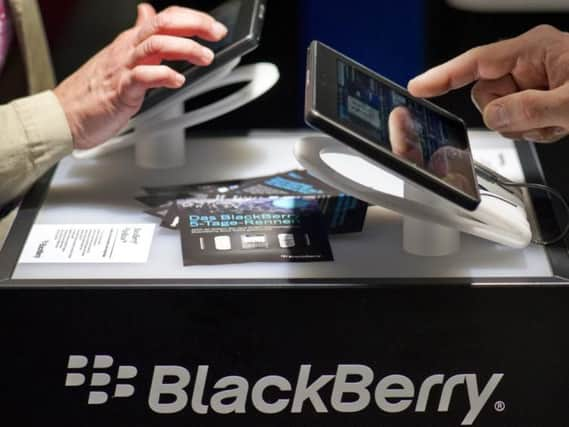BlackBerry to scrap in-house handset design


Now communications giant BlackBerry, which was known for its QWERTY keyboard smartphones, has announced it is to stop making its own handsets in house.
The decision came a year after chief executive John Chen warned he would close the division if he could not make it profitable within twelve months.
Advertisement
Hide AdAdvertisement
Hide AdThe Canadian firm, which posted further losses and plunging sales, said it would outsource hardware development to partners and focus instead on software. The firm, then knowsn as Research in Motion, invented one of the first smartphones in March 2002, when it launched the BlackBerry 5810 - which incorporated a phone, email and mobile web-browsing device. The brand quickly became popular with the business market.
But technology experts said that the company had been unable to keep up with more modern rivals such as Samsung and Apple as the smartphone market rocketed in popularity.
Ernest Doku, mobiles expert at uSwitch.com, said: "In spite of a small yet loyal-to-the-death contingent of fans, BlackBerry simply couldn't survive a market dominated by two mobile behemoths.
"In a bid to ride the touchscreen boom, BlackBerry tried to diversify away from its physical QWERTY keyboard with the launch of the Passport handset, but abandoning its unique selling point was a bad idea."
He added: "BlackBerry addicts will no doubt be gutted by the news, but this is one mobile maker that just made too many mistakes."
BlackBerry published second quarter results revealing it had tumbled into the red with net losses of $372 million (£286 million) against profits of $51 million (£39 million) a year earlier.
BlackBerry chief executive Chen said: "We are focusing on software development, including security and applications. The company plans to end all internal hardware development and will outsource that function to partners."
BlackBerry sought to turnaround its fortunes last year by producing its first smartphone-running Google's Android operating system rather than its own BB10 software, as well as other handsets which did not have a QWERTY keyboard. However, the Android product proved to be too expensive to appeal to the mass market.